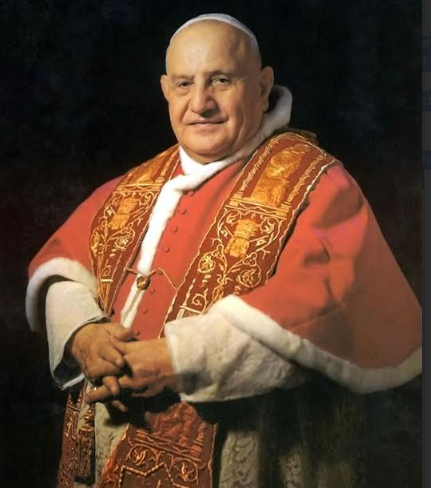Valentine Obienyem
While in church today, as I went through my book of the day’s readings, I noticed that yesterday was the feast day of Pope John XXIII—undoubtedly one of the most likeable popes in history.
I remember how I first stumbled upon his biography, “I Will Be Called John” by Elliot, in 1999 at the National Library in Yaba, Lagos, while searching for another book. Drawn by the richness of its preface, I could not put it down and ended up reading the entire work. He was affectionately known as the “rotund pope,” a nickname that reflected both his physical appearance and the warmth of his pastoral presence.
Pope John XXIII is best remembered for convoking the Second Vatican Council, a momentous event that forever secured his place in Church history. The Council aimed to renew the Church, making its message more intelligible and relevant to the modern world while remaining faithful to its ancient truths.
Another remarkable decision of his papacy was his choice of papal name. Before him, an antipope had assumed the name John XXIII during the Western Schism of the 15th century. When Angelo Giuseppe Roncalli was elected pope in 1958, he deliberately chose the same name to reclaim it for legitimacy, erasing the confusing legacy of the antipope, who had been very popular and was sometimes mistakenly counted among the names of past popes.
Beyond his historical significance, Pope John XXIII was deeply loved for his humility, warmth, and pastoral spirit. Known affectionately as “Good Pope John,” he reached out to people of all faiths, promoted peace during the tense years of the Cold War, and issued the encyclical “Pacem in Terris” (“Peace on Earth”), which remains one of the most profound papal appeals for universal harmony.
His papacy was remarkably productive. Amidst the deliberations of the Second Vatican Council, he wrote eight transformative encyclicals, each addressing the Church’s role in society, the promotion of justice, the sacred priesthood, and the call for peace and moral renewal.
Pope John XXIII’s legacy endures not only in the reforms of Vatican II but also in the spirit of openness, dialogue, and compassion he embodied. We shall continue to remember him as a pope whose vision continues to inspire generations to pursue a Church that is both faithful to tradition and responsive to the needs of humanity.
Follow us on all social media platforms @dailyquery for news and analyses around the globe.



























